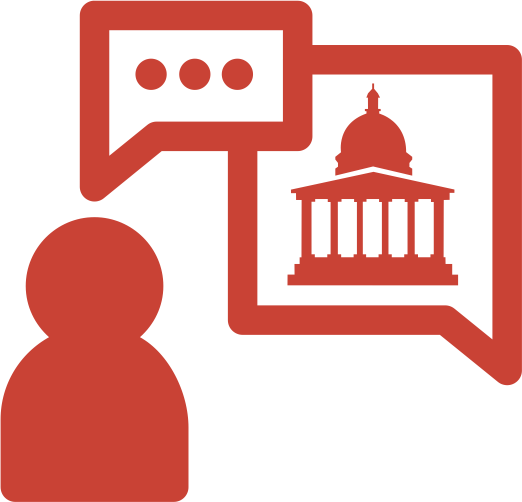Today learning is no longer confined to textbooks and lectures. Students thrive when they engage, collaborate, and share knowledge with one another. Peer learning is a powerful approach that enables students to support and challenge each other.
As an international school in Mumbai, we recognize that students learn best in an environment that encourages interaction, discussion, and teamwork. The ability to explain concepts to peers, ask questions, and debate ideas helps develop essential life skills beyond the classroom.
In this blog, we will explore how peer learning enhances academic performance and builds leadership skills while also creating a positive learning culture. Through structured activities and teacher-guided collaboration, students learn to work together effectively.
What is Peer Learning?
Peer learning is an educational approach where students learn from and with each other. It is based on the idea that learning is a social process and that knowledge is best retained when shared. Unlike traditional teacher-led instruction, peer learning allows students to engage actively in discussions and collaborative thinking.
This method encourages students to take responsibility for their learning by teaching and explaining concepts to their classmates. It fosters a sense of ownership over their education while strengthening their understanding of subjects.
Peer learning can take many forms, from informal study groups to structured classroom activities like peer tutoring, group projects, and collaborative discussions. It is a flexible approach that benefits students of all ages.
It helps them develop communication skills and teamwork. When students learn from one another, they gain new perspectives and build confidence in their abilities.
The Benefits of Learning with Peers
Some benefits of learning with peers are given below:
- Improved Comprehension:
- Better Retention:
- Critical Thinking Development:
- Enhanced Communication Skills:
- Stronger Teamwork Abilities:
- Supportive Learning Environment:
- Increased Engagement:
- Academic and Social Growth:
Discussing topics with peers reinforces understanding and helps fill knowledge gaps.
Explaining concepts to classmates strengthens memory and clarity of thought.
Encourages students to analyze information, challenge assumptions, and consider different viewpoints.
Helps students articulate ideas clearly, listen actively, and engage in meaningful discussions.
Teaches collaboration, problem-solving, and respect for diverse perspectives.
Creates a safe space where students feel comfortable asking questions and making mistakes.
Makes learning interactive and enjoyable, reducing passive absorption of information.
Balances intellectual development with emotional intelligence and interpersonal skills.
How Peer Learning Enhances Confidence and Leadership
Confidence is a fundamental aspect of student success. Peer learning plays a crucial role in building confidence. When students actively participate in discussions, present ideas, and help classmates understand concepts, they develop self-assurance in their abilities.
Explaining a concept to a peer reinforces knowledge while allowing students to practice public speaking and articulation. This process strengthens their ability to communicate ideas effectively—an essential skill in both academic and professional settings.
Peer learning also nurtures leadership qualities. When students take the initiative to guide discussions or mentor their peers, they naturally develop leadership skills. They learn to take responsibility, manage group dynamics, and offer constructive feedback.
Additionally, students become more independent learners. Instead of relying solely on teachers, they learn to seek solutions, collaborate, and take ownership of their education. This sense of empowerment contributes to long-term academic and personal success.
The Role of Teachers in Facilitating Peer Learning
While peer learning thrives on student interaction, teachers play a critical role in creating an environment where collaboration can flourish. At Aditya Birla World Academy, educators act as facilitators, guiding students to explore and discover concepts together.
Teachers can encourage peer learning by structuring group activities and providing constructive feedback. Assigning roles within peer groups ensures that all students participate actively.
Another effective strategy is to create a classroom culture that values discussion and teamwork. When students feel safe to share ideas without judgment, they are more likely to engage in meaningful peer learning experiences.
Teachers can also monitor interactions to ensure that discussions remain productive and inclusive. While students lead the learning process, educators provide gentle guidance to keep them on track.
By fostering a peer learning environment, teachers help students become more confident and engaged in their education.
Fun and Effective Peer Learning Activities
Peer learning does not have to be limited to structured discussions—it can be engaging and fun! Here are some interactive activities that promote collaboration:
- Think-Pair-Share:
- Peer Tutoring:
- Collaborative Problem-Solving:
- Debates and Discussions:
- Role-Playing Activities:
- Group Projects:
Students first think about a question individually and then discuss their ideas with a partner before sharing them with the class. This encourages critical thinking and active participation.
Pairing students of different skill levels allows them to teach and learn from one another. The tutor reinforces their own understanding while the learner benefits from personalised explanations.
Assigning students real-world problems to solve in teams promotes teamwork, creativity, and analytical thinking.
Encouraging students to defend their viewpoints and challenge opposing arguments enhances critical thinking and communication skills.
Acting out historical events, scientific concepts, or literary scenes helps students engage deeply with the material.
Assigning projects that require teamwork fosters leadership, accountability, and cooperation.
These activities make peer learning enjoyable while strengthening academic and social skills.
The Impact of Peer Learning Beyond Academics
While peer learning significantly enhances academic performance, its influence extends far beyond the classroom. It shapes students into well-rounded individuals by developing essential life skills that contribute to personal and professional success.
One of the most valuable aspects of peer learning is the improvement of social skills. Engaging with classmates in discussions, group projects, and collaborative problem-solving teaches students how to communicate effectively, resolve conflicts, and work as a team. These skills are crucial in higher education and future workplaces.
Peer learning also fosters emotional intelligence. When students support and guide their peers, they develop empathy, patience, and active listening skills. Learning to understand different perspectives and helping others overcome challenges builds strong interpersonal relationships.
Additionally, peer interactions boost resilience and adaptability. Facing different viewpoints, handling constructive criticism, and working through disagreements prepare students for real-world situations.
Beyond academics, peer learning nurtures leadership and confidence. Students learn to take initiative, share responsibilities, and trust their own decision-making abilities. These qualities empower them to succeed in various aspects of life.
Bottomline
Peer learning is more than just an educational method, it is an approach to empower students to grow together. Any prestigious international school in Mumbai will know that fostering collaboration, critical thinking, and confidence in students is key to their success.
By embracing peer learning, students strengthen their academic abilities and develop essential life skills. Learning with peers fosters a spirit of teamwork and shared growth. As one of the best international schools in Mumbai, we at ABWA encourage students to take an active role in their education by supporting their classmates and building a learning community.

 Online Admission
Online Admission Scholarship Programme
Scholarship Programme University Counselling
University Counselling Leadership
Leadership Voices at ABWA
Voices at ABWA